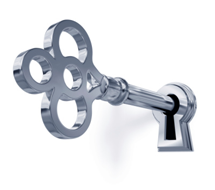 Rumours of the death of bank charge reclaiming are greatly exaggerated. People still regularly get some of their excess charges back – adding up to £100s, joining the £1bn already repaid.
Rumours of the death of bank charge reclaiming are greatly exaggerated. People still regularly get some of their excess charges back – adding up to £100s, joining the £1bn already repaid.
Yet the big change due to the nightmare 2009 Supreme Court technical ruling is that reclaiming the up to £35 a pop charges for breaching your overdraft is now primarily for those in financial hardship. This is a step-by-step guide to doing just that, including free template letters.
Other Reclaiming Guides:
Credit Card Reclaiming, Mortgage Fees, PPI, Credit Card PPI, Council Tax, Endowments
While every effort's been made to ensure this article's accuracy, it doesn't constitute legal advice tailored to your individual circumstances. If you act on it, you acknowledge that you do so at your own risk. We can't assume responsibility and don't accept liability for any damage or loss which may arise as a result of your reliance upon it.
Bank Charges: Key Info
 Reclaiming bank charges from current or closed accounts specifically for busting your overdraft limit, bounced cheques and direct debits was once an open door. You simply threatened to take a bank to court or the Ombudsman and it sent you back a goodwill cheque for six years' worth of charges plus interest.
Reclaiming bank charges from current or closed accounts specifically for busting your overdraft limit, bounced cheques and direct debits was once an open door. You simply threatened to take a bank to court or the Ombudsman and it sent you back a goodwill cheque for six years' worth of charges plus interest.
While charges have dropped slightly to an average of around £15 in the past few years, it's still possible to be charged up to £35 a pop for going overdrawn. Yet it may be possible to get this back.
Since the result of the Nov 2009 Supreme Court ruling it has been more difficult, but two years later some payouts are still possible for those in financial hardship.
If you're reading this after a one-off recent bank charge or a charge has been applied in error just call up the bank and see if it'll wipe it. This guide is aimed at those who've had a number of charges that have snowballed over a longer period. For many people, especially those who've had charges on charges, payouts could still be possible, and done right it's free and risk-free.
Some inspiration before you begin
We continue to receive reports from MoneySavers saying they're getting their money back... here are just a couple of examples:
This morning I have accepted an offer from Halifax bank to pay me back £330 of bank charges. It took less than 24 hours to for the Halifax to make me an offer after my initial complaint so it is worth your time to make a claim.
Oct 2011Reclaimed under the hardship rule using a template from this site and have been offered a refund of all charges from 2011 totalling £415 plus £50 goodwill payment (from a total claim of £2536.83 inc interest) and the £30 charge which was due to be debited in December written off.
Nov 2011Report your own successes and failures in the forum
How easy will claiming be?
There's no guarantee of winning, yet for some, primarily those in hardship, there's still a risk-free, cost-free process which could see money coming back.
The independent Financial Ombudsman Service will still look at certain cases (see the step by step process below), and there's no risk in doing so. Yet even so...
"The safest thing to do is plan your finances on the fact you WON'T get a payout, but cross your fingers in the hope you will"
Some do find battling their bank stressful though, so go in with a positive mind, and even if you don't get a refund don't feel let down.
And do remember the best way to avoid bank charges is not to have them in the first place – for help avoiding them see the Bank Charges Compared guide.
Don't miss out on updates to this guide Get MoneySavingExpert's free, spam-free weekly email full of guides & loopholes
Step-by-step reclaiming guide
Reclaiming bank charges has always been an art not a science. In many ways this guide is about negotiation. It's designed to try and get back the money we believe has been unfairly taken off you as quickly and swiftly as possible. It's important to remember the basics though...
You want your money back, the bank isn't keen to give it. Yet it's obliged to treat customers fairly and stay within the law.
If the bank believes your complaint may be investigated by the Ombudsman it may offer a partial, or even rarely a full, settlement when you just write it a letter or two. After all, if it ends up paying out, it's better to do it sooner, and offer a bit less, rather than incur the expense of fighting it.
Therefore acting confidently and pressing your case if you think you've had unfair charges is crucial. If you've a strong case you could get some of your money back.
However of course, there are no guarantees. While in the early days of reclaiming banks never fought, and often gave a full payout, that's far less likely now. So if you are offered a settlement, think about taking it.
Step 1: Are you eligible?

Before you even start to reclaim, we need assume that your complaint to the bank could be rejected so you may need to take it further. Most will do this via the free Financial Ombudsman Service. Some may decide to go to court, which is explained later in the guide.
The Ombudsman is an independent service created by parliament to help settle disputes between financial companies and their customers. The worst thing that can happen is you wait a couple of months and get rejected (read more about it in the Financial Ombudsman guide).
It's free and virtually risk free, so if you have a chance of complaining there rather than court it's much safer and more desirable. You don't need to go in person, it's just a matter of filling in forms.
The Ombudsman has said it is willing to look at specific types of bank charge reclaims (see below) primarily involving severe hardship and if you can go this way, it's a far safer option. It doesn't mean you'll win, but the risk of losing is less.
Who can go to the Ombudsman?
The Ombudsman has said it doesn't want legalese challenges; it will only look at cases based on the ‘fairness' criteria – in other words if you have been harshly or unfairly treated. It's specifically noted three different reasons which it would be likely to look at on this basis.
The reasons can either apply to your situation now, or at some point in the past. Yet importantly, if you're no longer in hardship the Ombudsman will look at how your bank treated you at the time and whether you are still struggling. To help your case you should have contacted your bank for help when you had the difficulties.
So check whether you fit in one or more…
1. You're in financial hardship
 Under both standard banking regulations and the Lending Code (an agreement that all major banks have signed up to) banks must treat you fairly and be considerate if you are in financial difficulty.
Under both standard banking regulations and the Lending Code (an agreement that all major banks have signed up to) banks must treat you fairly and be considerate if you are in financial difficulty.
We have therefore used these criteria as well as guidance from the Ombudsman to try and give some ideas as to what would count as hardship.
You're likely to need several of these criteria to be successful, not just one, and you'll need to give the bank full details on how you've been affected. Check the following guidelines:
Can't pay for necessities. You're struggling to meet basic necessities eg mortgage, council tax, food, utility bills
Can't pay debts. You're struggling to make loan and credit card repayments
Income eaten by charges. Your income's being eaten up by repaying charges (eg you're being asked to pay £50 of charges from a £100 weekly benefit income)
Note: this doesn't specifically cover the deduction of bank charges from your benefits under the Social Security Administration Act 1992, this is an urban myth-
Payments regularly returned. Your payments regularly get returned unpaid as you don't ha've enough money in your account
-
Substantial drop in income. For example, you've lost your job, started a lower paid job, needed to take parental or carers leave, your partner has died, you've separated from your partner, you've started full time education or you/your partner has been in or gone to prison
Disability or illness. You've needed to increase spending on something due to a disability or serious illness
Going bankrupt or into debt management. You're going bankrupt, getting an IVA or Debt Relief Order or are in a debt management plan
Continually living off credit. You're living off credit and regularly need to increase your credit limit
Regular credit card cash withdrawals. You are using regular cash withdrawals from credit cards to make ends meet
Frequently over overdraft limit. You frequently go over your overdraft limit. In earlier incarnations of hardship rules this was explained as having more than £500 of charges a year – so that seems a good benchmark
Bank charges have hurt your situation. The charges have contributed to making your financial hardship situation materially worse
2. The charges are disproportionate

If you unintentionally slipped over your limit by a few pounds and the charge is a lot higher than the ‘offence' eg, you go £1 over but are charged £35.
The FOS stresses these cases are not "black and white" and those who continually slip over their limit, not in hardship, are unlikely to be successful.
3. You are / were stuck in a cycle of charges you cannot break out of
 This is known as snowballing and effectively means you've had charges on charges, so you've been stuck in a trap of not being able to clear charges before new daily or monthly fees are added on top.
This is known as snowballing and effectively means you've had charges on charges, so you've been stuck in a trap of not being able to clear charges before new daily or monthly fees are added on top.
This is very common for those with larger reclaims, and is often the reason why some people are being paid back many £1,000s. Of course it tends to go hand in hand with being in hardship.
Which category do you fit?
After reading the list above, here's how to decide what's next:
-
You're pretty sure you fit into these guidelines. If so follow the Ombudsman route laid out below.
You think you could fit into these guidelines. If it's touch and go, then it's worth trying this route as it's safest and you've nothing to lose. You are still allowed to go to court if you lose at the Ombudsman – though you can't go to the Ombudsman once you lose in court.
-
You don’t fit into these guidelines. In this case the only chance is to go to court, and that means the landscape is radically different. We need to be honest, while we have a Bank Charges Court guide which goes into the complex legal arguments you could try – we've not heard of anyone actually winning.
Success there won't be easy and will involve you using untested legal arguments. The information is in that guide, but understand it could be very difficult with little guarantee of success. Yet feel free to have a read.
Don't miss out on updates to this guide Get MoneySavingExpert's free, spam-free weekly email full of guides & loopholes
Step 2: How much can you reclaim?
If you're making a new claim, the first step is to find out how many charges you've had (and can therefore try and reclaim). Here's a quick ‘how much' Q&A; (click for the answers):
Q. What charges can I try to reclaim?
We're talking specifically charges and related costs for going beyond your overdraft limit, or bounced cheques and direct debit. Traditionally these were about £35 per transaction but can now range from around £5 up to £35.
Bank account monthly fees for packaged accounts are not part of this – and can't be reclaimed (though they can be cancelled, see Best Bank Accounts guide). The rules are also different for credit cards, see the Credit Card Reclaiming guide. You may also want to see the Bank Charges Comparison tool to see how your bank's charges compare.
Q. Can I try to reclaim if the account's now closed?
There is nothing barring you from trying to reclaim charges if you've now closed the account, even if it was a few years ago.
Q. Can I reclaim from more than one bank?
Yes there's nothing barring you trying that, this applies to any current account you've had.
Q. Can I try to reclaim new charges if I've been paid out before?
Yes, there's no bar on reclaiming again. However the fact you've already been through this is a worrying sign of either severe financial problems or money mismanagement. Do also read the Debt Help and Budgeting guides to try and prevent further problems.
Q. How far back can I reclaim?
We're certainly talking years not months, though there are varying views on how many, and you'll probably be asked to prove your financial situation for the full time you're claiming for. Don't worry if you haven't kept historic statements though, you've a legal right to access them (see below).
The Ombudsman suggests claiming as far back as you like, and it will decide whether or not all or part of your claim can be considered. We believe it's more popular than not to only be paid part of your claim though.
Technically the Ombudsman can only help with claims within three years of when you realised there was a problem, so if you've been waiting, claim now, yet if you end up in court, normally the Statute of Limitations Act says you can only claim for something within six years of the event in England, Wales and Northern Ireland, and five years in Scotland.
In many ways this six years is probably a good rule of thumb for putting in front of the Ombudsman, though if you had substantial charges before that there's no harm including them.
Q. Can I charge interest on my bank charges? (incl bank charges calculator)
If you got to court and won there, you'd be entitled to add 8% flat interest (not compounded) on top of compensation from the date of each charge. Therefore, you may want to ask for the interest as part of the initial claim.
Do understand you are NOT legally entitled to interest unless you win in court, yet if you do decide to push hard, consider it part of the negotiation process. It may mean you could offer to settle “without interest”. Plus the Ombudsman's view is it'll consider interest if it's asked for – and may even plump for the interest you were charged by your bank eg, around 20% - so don't ask don't get.
Bank Charges Interest Calculator
For those who want to ask for interest, the calculator below will work it out for you. When you click ‘print', a new window will pop up with a list of your charges. To save the list and avoid typing it in again, highlight the text in the window, then copy (Ctrl + C) it and paste into Word or similar programme.
If you're recalculating a previous claim you'll need to input all of the charges and dates again to get an up to date amount.
Q. Can reclaiming hit my credit score?
No, it can't hit your Credit Rating and won't go on your credit file. Yet the bank you reclaim from can keep its own record, and it may choose not to deal with you in future.
If you are making a hardship claim and are offered some kind of payment plan to manage your account you need to ensure you check any effect the plan could have on your credit rating.
There's also a small chance you'll be moved to a basic account or be asked to return your cheque book and have other restrictions placed on your account. If this restricts your day to day finances it may be worth opening an alternative account. See Best Bank Accounts.
While in the early days banks closed the accounts of some reclaimers, the Ombudsman has ruled against that and the practice has largely stopped. The FSA also says: “A firm must not close accounts or threaten closure when it might reasonably appear that this is for the purpose of penalising customers that have complained about unauthorised overdraft charges.”
Yet, if you really want full belts and braces, it may be worth opening an alternative, or 'parachute', account with another provider before you start (see Best Bank Accounts).
What should I do if I don't have old statements?
Now, let's be honest, how many people have years' worth of statements? If you don't have them, don't worry, you've a legal right to force the bank to give you them, but before that there are a couple of things you can try…
-
Do it online. If you use online banking check out what's available there first.
Call or write to the bank. Some banks will send you the info if you phone to ask (we've had feedback in the past that sometimes Barclays, Halifax and HBSC have done this) so try this first.
You can also send a letter to your bank requesting a comprehensive list of all past transactions, including charges (and at this point you may as well try going back for the longest period possible).
Demand your past charges under the Data Protection Act
If the above doesn't give you what you want, you've a legal right to demand the information under the Data Protection Act, though banks are legally allowed to charge up to £10 for it (and banks being banks, they usually charge the full amount).
To speed the process up you could insert a cheque for £10 as part of your initial request as banks may stall the process by later writing to ask for the money. Of course the counter is that it may send you the information without charge if you don't include the tenner.
Yet there's one crucial fact here…
Never ask for statements, specifically request a list of transactions
If you do ask for statements you may be charged £10 a time, and over six years that's £720, yet asking for a list of charges should be fine.
Here's a template to help (and MoneySavers in the forum have kindly compiled bank addresses if you don't know yours):
Banks have 40 days to respond to this request. If you have to wait longer, follow up with a phone call and then report it to the Information Commissioner for a breach.
When you receive your transaction list go through with a highlighter and find all the relevant charges. You should also be able to note what the charge was for and decide why you think it was unfair.
Don't miss out on updates to this guide Get MoneySavingExpert's free, spam-free weekly email full of guides & loopholes
Step 3: Write asking for your money back
It's now time to contact the bank and ask for your money back.
If you fit in the Ombudsman criteria from Step 1 this is where you use the fairness argument. This is not based on any law, but is about simply telling your story about how the charges have impacted you and caused or worsened your financial situation and firmly stating you'll take the matter to the Ombudsman or court if it refuses to hear your case or if it rejects it. The aim here is to make it take you seriously, yet equally you need to go into this with your eyes open...
The bank may respond noting the Supreme Court decision means you can't reclaim. If you feel you've a case don't let it put you off.
Remember even in the days when banks were paying back millions to reclaimers, almost everyone who wrote got a rejection letter first time. Don't let it phase you, it's a step in the dance, we know from Ombudsman reports some banks use rejection purely as a tactic regardless of merit.
Free sample letters to adapt and send
Feel free to write the letter to your bank yourself, though below to help we have provided a number of sample letters for different circumstances that can be used as a base.
Adapt these letters to your circumstances, and delete all the guidance notes. If you're unsure, ask a friend if it makes sense.
Pick which letter is most appropriate to your circumstances. If you find the letters confusing then do seek any available legal help or speak to advisers at the Citizens Advice Bureau.
The Ombudsman is very keen that people explain why they're in hardship rather than using legal jargon. While this is less important in the letter to the bank – it's good to start here and explain why it's been such an issue. It's to be hoped the banks will be responsible and make their decision based on the Ombudsman's guidance.
So tell your story naturally (and truthfully) and if you fulfil the criteria of hardship do make sure you include points that show it. As a short made up example...
“I lost my job as an electrician in July 2005, and as my wife was ill in hospital at the time things were very tough. Soon we were unable to pay the bills and moved into our overdraft and beyond it. We then started to be hit by charges of £35 a time, which were completely unaffordable and we were trapped unable to pay them back.”
Tell them about your circumstances, and add any evidence from the time you were in hardship to speed the process up. This could include bank/credit card statements, a redundancy letter, a P45, confirmation of a special payment plan, a letter from a debt advisory service or anything else.
Select which letter you need. Choose 'Reopen complaint' if you need to tell the bank you are now in hardship or have extra charges to add to your claim, otherwise 'Start a new complaint' is likely to be best for you...
Start new complaint Reopen complaintWhat happens next?
You should get a letter back from the bank acknowledging your complaint and it then has up to eight weeks to deal with it. When your case is dealt with there are a number of possible outcomes:
You're offered a full refund
There is a small chance your bank will offer you a full refund as a ‘goodwill payment'. It's more likely to happen if you have a small claim or have provided very detailed evidence on how you've been in hardship for the full timeframe you are trying to reclaim for. If it does… hoorah!
You're offered a partial refund
If you're offered anything at all, it's more likely to be a partial refund as a goodwill gesture. Recent successess suggest many are being offered around six months of charges but it should depend on your circumstances and the amount should result in you being treated 'sympathetically' plus be a 'reasonable' amount for your situation.
If you don't think it's enough, call up and ask for what you feel is appropriate – remember this is a negotiation. A quick call saying, “I've had £1,300 of charges, you're offering me £400 – I'll take £800 as it's a fair reflection of my situation”. Remember banks have to balance the administration cost of continuing versus clearing this off their books. And you need to factor in your hassle and risk of continuing against getting some cash now.
Please report your success in the reclaims success reports thread if you get a refund.
It offers a refund but says it should pay off your debt
You may be offered a refund but told it must be used to pay off the debts you currently have at the bank (whether overdrafts or cards). The Ombudsman has said this is generally acceptable as it is returning you to the position you would be in without charges (and is still a win after all).
However if by the bank doing this you are still left in hardship eg, you have mortgage or utility arrears, tell it. If it doesn't budge read Step 4 below.
It'll ask you to fill in a financial statement form
If you've told the bank you're experiencing financial difficulties and it's unsure you fulfil the hardship criteria it may send you an income and expenditure form, or something similar, to complete.
Fill this in and send back as soon as possible. Do re-include your original letter, adding a line that you've enclosed the info as requested – this emphasises that you're serious and confirms exactly what you're asking for.
Once you've sent that you could then get the same list of results as happens here.
It offers to help but not to refund any charges
Even if the bank has accepted your word that you're in financial difficulties or does after you've sent in the financial statement, this doesn't mean it has to give you your money back, just that it has to treat you sympathetically.
It could try and help in other ways, such as not imposing any further charges, rescheduling payments or charges to minimise the impact, stopping any debt enforcement action against you or putting you into a payment plan to manage any debts you have with it. If you're not happy with the offer carry on to Step 4 below.
The bank rejects your claim
By auto-rejecting even people with reasonable claims, the banks succeed in stopping some people either going on to the Ombudsman or taking their claim to court or (see below for details on what each means), as people give up, and that's the whole point. Yet whatever it says…
Don't give up. Call up or write another letter to show you're not going to give up easily. This could persuade it to settle.
If your first letter doesn't work, before going further you may want to give the bank a call, or write another letter saying you're going to the Ombudsman and you think your case is strong, but would prefer to sort it out quickly. See how that works and carry on if it doesn't.
Don't miss out on updates to this guide Get MoneySavingExpert's free, spam-free weekly email full of guides & loopholes
Step 4: Complain to the Ombudsman
If you haven't been able to negotiate a satisfactory settlement with your bank at this point, then it's time to take it to the Ombudsman.
Here you need to rely on the ‘fairness argument', ie, the problems charges have caused you, as the Ombudsman has said it is unlikely to consider ‘templated arguments'.
As it's free and there's no negatives apart from a few months wait, even if it rejects your complaint, it's worth doing. It's not guaranteed to get you a payout but the chances are greatly increased if you are in financial hardship. The worst that can happen is you lose the cost of a few stamps.
How to complain to the Ombudsman
The Financial Ombudsman Service, is the official independent financial disputes body, and it's completely free to use. It's nothing like going to court and can all be done simply from the comfort of your home – either via the internet or post.
The Ombudsman's job is to settle disputes and see if your bank has looked at your situation properly. If it accepts your complaint, it first goes to the bank and asks it about the situation. If the bank doesn't agree to pay you, the Ombudsman may carry out a formal investigation. It's far more common that a settlement is reached without a formal investigation and adjudication though.
You can't simply go direct to the Ombudsman, you must always complain directly to the bank first. Then you need wait eight weeks from the date you sent your initial letter to the bank – however if you've received a rejection or final response from it, you can go sooner. Don't expect an instant decision though – it can take weeks or months.
It's is a deliberately simple process and there is a designed complaint form that you need to fill in, which can be obtained two ways…
-
By phone. Just call 0800 023 4567 (from a landline) and 0300 1239123 (from a mobile) for free
- Online. Just go to the FOS website, where there is a Microsoft Word version or PDF version
You'll need to fill in and post back a copy of the form to explain your case and so it has a copy of your signature. You should also send copies of any previous correspondence you've had with your bank.
What to write on the complaint form
Honestly state what's happened to you; the Ombudsman has specifically said it's not interested in template letter type applications. It wants to hear the affect of bank charges on you from a human perspective – so make it as personal and specific as you can (though it needn't be over emotional – stick to the facts and the impact).
You can also ask for interest to be added to your claim (eg, the 8% you'd get if you were going to court or the actual interest you were charged by your bank of around 20%). After all, if you don't ask, you don't get.
To help we've written a guide in Word so you can easily cut and paste sections of it and/or print it out and have it next to you as you're filling in the FOS form:
The FOS will then send you a confirmation letter that it will look into your case and get back to you if it needs any more information, but otherwise you can then leave the matter to it to resolve and it'll contact you with any offers from your bank.
If it decides in your favour its aim will be to put you back in the position you would have been in had you not been treated unfairly. This does not necessarily mean a refund of charges, it may think an alternative solution is more suitable.
Although the Ombudsman resolves around a half of bank charges cases within three months some do take longer (between six to nine months).
See the Financial Fight Back guide for other complaints the FOS can help with.
Step 5: If you lose at the Ombudsman
For many people that's it, you've lost and there are no further routes although you can still go to court using the arguments charges are ‘legally unfair' (you can't go the Ombudsman if you've already failed in court though) so this may be an option for some.
This is something that should not be undertaken lightly, you will need to do work and research and be prepared to turn up in court to argue this. The arguments are complex and untested and it won't be easy to do. It will almost certainly involve paying a fee and also has a small risk of having costs awarded against you.
The Legal Argument
In the Supreme Court decision in 2009 the chief judge thought it important enough to say this ruling didn't stop people challenging fairness under 'Regulation 5' of the Unfair Terms in Consumer Contracts Regulations (UTCCR) which the Supreme Court case did not cover.
We hired a top banking QC to suggest possible new grounds for reclaiming to us but they were just thought papers, and two years later are still to make their full way through court. The first argument uses a different part of the UTCCR, the second a new argument based on the Consumer Credit Act.
While we think the arguments certainly make sense, when the Office of Fair Trading looked at them in 2009 it didn't believe they had a realistic chance of success so wasn't willing to take on another case.
Taking this route is likely to be difficult and there are risks involved but we've written a separate guide to explain the legal arguments involved. For full detail read the Bank Charges: Court Claims guide.
Don't miss out on updates to this guide Get MoneySavingExpert's free, spam-free weekly email full of guides & loopholes
Bank Charges Reclaiming Q&A;
What's so unfair about bank charges, it's in the Ts and Cs?
Go beyond your overdraft limit or have a cheque or direct debit payment bounce and banks have (and some continue to do so) charged up to £35 a time even if you were only £1 over the limit.
Yet all it has to do is send a computer-generated automatic letter with a franked stamp. A report by a professor of banking estimated this cost only between £2.50 and £4.50. And this was being generous.
All in all, we continue to believe this means bank charges are unfair and the banks had no right to grab your cash, which added up to huge amounts over the years.
And this isn't just a campaigner's view. Before the shock decision from the Supreme Court, the OFT had provisionally said it thought charges were unfair. Maybe going for a principled look at the law rather than looking at individual cases was a tactical error from the OFT.
The loss in the court was down to a legal technicality, which both the High Court and the Court of Appeal disagreed with; that unfairness cannot be decided on price. Maybe they would have ruled differently if they were presented with one of the many 1,000s of people who slipped into an unauthorised overdraft due to error and got caught in a snowballing spiral of charges.
At the end of the day is it fair that the poor members of society are paying for the ‘fees-free' banking for the rich.
As for the ‘it's in the terms and conditions' question…
Of course, if you had read the terms & conditions when you got your bank account, the charges were in there. Yet that's irrelevant: a contract must be written within the law, and financial services must be fair. Let me use my favourite analogy for this:
If someone told you they were about to punch you before smacking you; it doesn't make it legal or fair. The same's true with bank charges.
No one's saying there shouldn't be bank charges, just that they are set massively too high; a few pounds would be more appropriate. People should have the ability to opt out and they should be structured so that they don't snowball.
Isn't it just a punishment for taking money that isn't yours?
Not at all, bank charges were introduced as a way to make profit.
It used to be that when you went beyond your limit the bank simply didn't pay. Then some bright spark decided to set up a new hidden ‘paid limit' where if you go beyond your overdraft you could still get money but be charged up to £35 a time for it. And the UK banks were comfortably making over a billion pounds a year from these fees.
Worse still the original design was one that trapped people into charges on charges.
One example is of a woman who went shopping thinking she was £50 from her limit but unbeknown to her an old cheque from months before had been cashed that day so she was actually at her limit. She bought six items totalling £30-£40, one a bag of carrots for around a quid – and was charged for each – a total of £210. Even if she'd taken cash out and spent the money it would only have been one charge.
Another is the woman living off benefits as she was a carer for her autistic son. She did not spend more than she earned, and budgeted well. One week the benefits failed to pay, her direct debits bounced and she had a couple of hundred quid worth of charges but no way to repay. A year later charges on charges had snowballed this to £3,000. If anyone is stealing money when it comes to bank charges – it's the banks.
For full info on how charges are structured see How Bank Charges Work
A company has said it can get my charges back for a fee, is this true?
Some firms may claim this, yet they have no more influence or power than you do – so do consider whether you could just cut out the middle man and do it yourself.
For most literate and numerate people with access to the web, bank charge reclaiming at the Ombudsman is a straightforward process. While it takes a bit of time and effort, all the resources above should give you most of what you need to do it yourself.
If you need help though, the options are a lawyer or claims handler as they're commonly advertised. Yet they are expensive and at best will take around a third of the money that you're owed. In general there's simply no need to use another company and this site's stance is that it's easy and more lucrative to use the info above to do it yourself.
Yet there are times it may be suitable. Those with more complex cases, such as hardship cases stuck in court or anyone facing trickier areas of law may find professional help useful. The same's true of people with genuine financial phobia, lack of web literacy, or mental health issues.
If that's the case, it's important to check out who you would use. If you are going to use a lawyer or claims handler ensure you…
Never pay anything upfront
There are some companies who will offer to carry out your claim for an upfront fee but if the company is not open and up front about its fees, which as a rule of thumb shouldn't be much more than 25% of what you win, then don't go there. Also feel free to ask for references from other satisfied customers, which it should be happy to do if kosher.
All claims companies must be regulated for claims management activities and will have a reference to check (eg CRM1234) on the Ministry of Justice database. Avoid anyone not on this list.
Will charges become fairer going forward?
The Government said in Dec 2009 it will ensure the system of unauthorised overdraft charges is made fairer for consumers in the future and warned it would take action if a voluntary agreement can't be reached.
While we've already seen charges lowered by many banks (see the Bank Charges Compared tool) prices have only fallen slightly over the past few years from an average of £25 to around £15. There have been no substantial changes and banks continue to make billions each year from vulnerable consumers in overdraft charges, with some still charging up to £35.
Banks have finally agreed to limited new measures to come into place in 2012 (see overdraft news) to introduce a small buffer zone, a short grace period to pay and low-balance text message alerts but the perverse current scenario continues to be that bank accounts must be fair when they are in credit because they're regulated by the OFT, but needn't be when they're overdrawn due to the court ruling.
During the OFT's test case the banks argued that their charges are a part of the ‘price' of a bank account – and the entire Supreme Court judgment rested on the fact it agreed with this. Yet it is the FSA that regulates deposit accounts including bank accounts and as this is now a core part of the price of the bank account it should come under its regulatory structure.
With current changes being debated on how our financial system will be regulated in the future we're hoping this will be revisted once the new structures are in place.
Was the campaign wrong all along?
Certainly not. It's worth thinking about the overall result of the campaign. Even if no one else gets another penny back 100,000s have already received over £1 billion. Add to that the fact many banks have now lowered their fees, and people have learned banks are there to sell - not to advise - and that you can challenge them.
Even with the poor court result, that makes it the most successful consumer campaign since the poll tax riots. Never mind the fact that both the High Court and the Court of Appeal agreed with the OFT's case.
Where can I get further information – are there other sources?
There's this site's Bank Charges Forum where many reclaimers discuss things, there are also a number of very good smaller free fellow campaigning websites dedicated to reclaiming unfair charges and helping consumers.
The ConsumerActionGroup is a focused web forum based around reclaiming charges; it's run by a group of people who took on the banks in the very early stages, PenaltyCharges is run by a law lecturer who successfully took on the banks and campaigns on the site and LegalBeagles followed the test case very closely by sending several representatives to the hearings.












